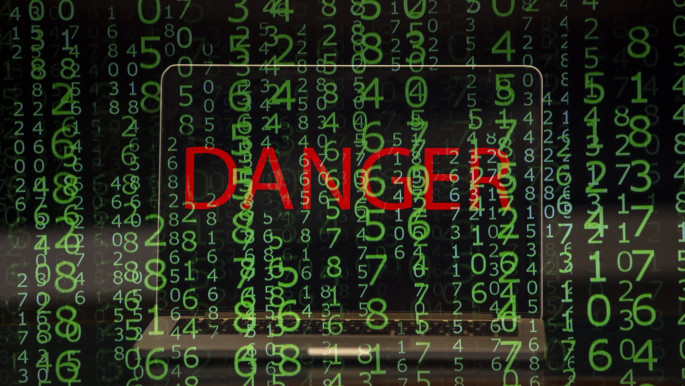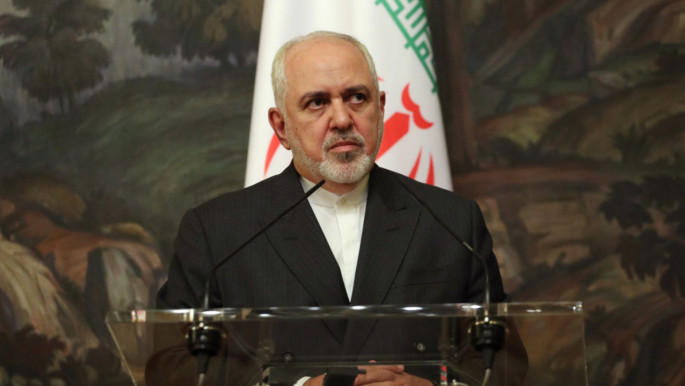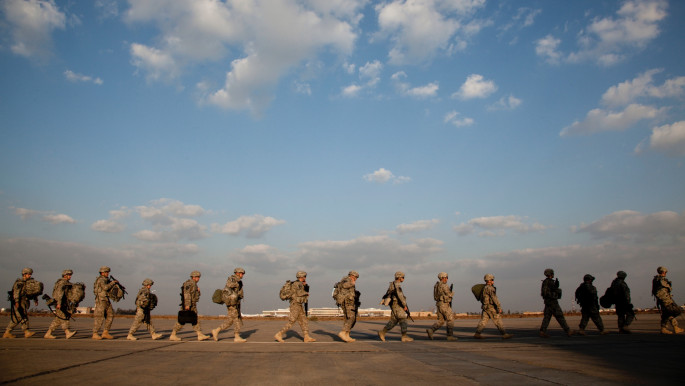Will the UN arms embargo on Iran be extended?
Certain restrictions on the export of technology related to nuclear weapons delivery systems to Iran are due to expire on 18 October, 2020. But the question now remains whether the embargo will be extended.
In short, the embargo was established to prevent Tehran from developing nuclear weapons capability. Even after three years of investigations, the International Atomic Energy Agency (IAEA) had been unable to verify whether Iran had any undeclared nuclear material and reached the conclusion that it was non-compliant with agreed safeguards.
Therefore, the matter was brought before the UN Security Council, where Tehran refused to stop enriching uranium even after being offered various incentives.
Consequently, the embargo was implemented as resolution 1737 by the UNSC to prohibit other states from supplying or helping Iran with nuclear processes like uranium enrichment, nuclear fuel reprocessing, or heavy water related activities.
Meanwhile, more focused efforts to slow down Iran's nuclear activity continued, and a deal named the Joint Comprehensive Plan of Action (JCPOA) transpired between Britain, Germany, France, China, Russia and the US in 2015. At that time, Iran pressed for lifting the 2006 embargo upon the implementation of the deal.
 |
As the embargo approaches its deadline, the US is trying to get it extended indefinitely by the 15-member UN Security Council |  |
Nevertheless, the arms embargo was retained for five more years according to Security Council Resolution 2231. It will expire at the end of this year, unless UN sanctions on Iran are reinforced.
Now as the embargo approaches its deadline, Washington is trying to get it extended indefinitely by the 15-member UN Security Council. Having withdrawn unilaterally from the JCPOA in 2018 to negotiate new terms, the Trump administration has long held the view that more checks are required on Iran's nuclear program.
 |
|
| As mysterious explosions rock Iran's nuclear facilities, is cyber-warfare Israel's newest weapon of choice? |
Pursuing a standalone Security Council resolution establishing a new arms embargo on Iran, Washington has upped the ante, but there is a high chance that other members will exercise their veto.
Reportedly, the US shared sections of the resolution draft with European members of the nuclear deal in February 2020, but they have not come forward in support. In the meantime, the appeal has been vehemently criticised from veto-powers Russia and China even before it has been presented for voting, so the prospects of the extension seem shaky.
Expressing their concerns to the Security Council regarding the lifting of the arms embargo on Iran, the European members - Britain, France and Germany - conveyed that there will be major implications for regional security and stability once the restrictions end. Notwithstanding these fears, they have maintained that they would not back a re-imposition of all UN sanctions.
Instead, the European powers would back any compromise negotiated under the framework of the 2015 nuclear deal to limit Iranian access to arms, however, this would not be an action implemented by the Security Council.
 |
Washington has upped the ante, but there is a high chance that other members will exercise their veto |  |
The extension of the embargo, therefore, does not seem likely at present. However, the US does have two more options. First, Washington could invoke a provision in the JCPOA providing for the re-imposition of UN sanctions against Tehran by asserting that it remains a participant of the 2015 nuclear deal so that it can exercise a Security Council provision, Resolution 2331, to block an expiry of the embargo.
Ostensibly, all participants of the nuclear deal have the ability to invoke such a snapback and even though the US withdrew from the JCPOA in 2018, this particular resolution was never amended to reflect its withdrawal and the US is still formally named as a participant.
According to an op-ed written for The Wall Street Journal by Brian Hook, US special representative for Iran and policy adviser to US Secretary of State Mike Pompeo, triggering this clause could even push Washington to return to the 2015 nuclear deal. However, even after re-joining the JCPOA, reinstating UN sanctions will still not be easy as nine votes with no vetoes will be required from the UN Security Council.
 |
|
| Read more: Back to square one, as the JCPOA turns five |
Secondly, the US can employ diplomatic tools to address its concerns over Iran's nuclear program or its conventional arms trade. In fact, such diplomatic efforts or negotiations for a new nuclear deal might prove more effective.
Already, Pompeo had announced on 9 May that, Washington "will exercise all diplomatic options" to extend the embargo. This was after having received a congressional letter saying that, "[T]his letter, supported overwhelmingly by both parties in the House, represents an imperative to reauthorize this provision - not through snapback or going it alone, but through a careful diplomatic campaign."
However, several other restrictions governing arms sales to and from Iran will continue to remain in place as an embargo on arms exports from Iran was added by the UNSC in March 2007 followed by a UN embargo on exporting major conventional weapons to Iran. After the 2006 embargo expires as scheduled, Iranian arms sales will continue to be subject to US and UN restrictions.
 |
If the embargo ends, a new deal or a compromise would be required as early as possible to avoid the proliferation of arms sales |  |
Meanwhile, the situation remains tense and at times the risk of war has escalated. Last week, a boat carrying Iranian weapons for the Houthi rebels in Yemen was also apprehended by the US and its allies.
Renewing his appeal to extend the embargo, Pompeo addressed a Zoom meeting of the Security Council, saying, "Don't just take it from the US, listen to countries in the region. From Israel to the Gulf, countries in the Middle East – who are most exposed to Iran's predations – are speaking with one voice: extend the arms embargo."
Giving details of the Iranian connections, Rosemary A. DiCarlo, the UN Under-Secretary General for Political Affairs, also confirmed that limits of uranium enrichment were surpassed.
 |
|
| Read more: Russia and China vie for influence in US- dominated Middle East arms market |
It is a complicated situation, and even if the UN does extend the embargo or re-imposes sanctions, the 2015 nuclear deal would simply collapse once the sanctions swing into action again.
The end result could be an unconstrained, un-monitored nuclear program in Iran as it was already exceeding JCPOA limits on uranium enrichment. Moreover, Tehran would most likely withdraw from the Non-Proliferation Treaty (NPT) restrictions if Resolution 2331 is extended indefinitely, and this intention has been shared publicly by the Iranian Foreign Minister, Javad Zarif, earlier this year.
According to Reza Nasri, an international lawyer and foreign policy analyst, in such a scenario, Tehran would "probably rethink its nuclear doctrine" and its terms with the IAEA. Quite recently, some Iranian lawmakers have been making such moves after the agency called on Iran to "fully cooperate with the IAEA in implementing its NPT Safeguards Agreement and Additional Protocol." The speaker of the parliament, Baqer Qalibaf, also supported disallowing IAEA inspection.
Eventually, Iran would drift towards Russia and China for weapons and there have been several reports about major arms deals to get SU-30, SU-34 and SU-35 fighter aircrafts.
Discussing the details with Anadolu Agency, security analyst Sirous Amerian said, "I think they have been discussing arms deals for a while now. Iran's defense minister visited Moscow a couple of times and Iran's chief of staff visited China a while back."
Therefore, if the embargo ends, a new deal or a compromise would be required as early as possible to avoid the proliferation of arms sales and dispel any perceived ineffectiveness of sanctions.
Sabena Siddiqui is a foreign affairs journalist, lawyer and geopolitical analyst specialising in modern China, the Belt and Road Initiative, Middle East and South Asia.
Follow her on Twitter: @sabena_siddiqi





 Follow the Middle East's top stories in English at The New Arab on Google News
Follow the Middle East's top stories in English at The New Arab on Google News


